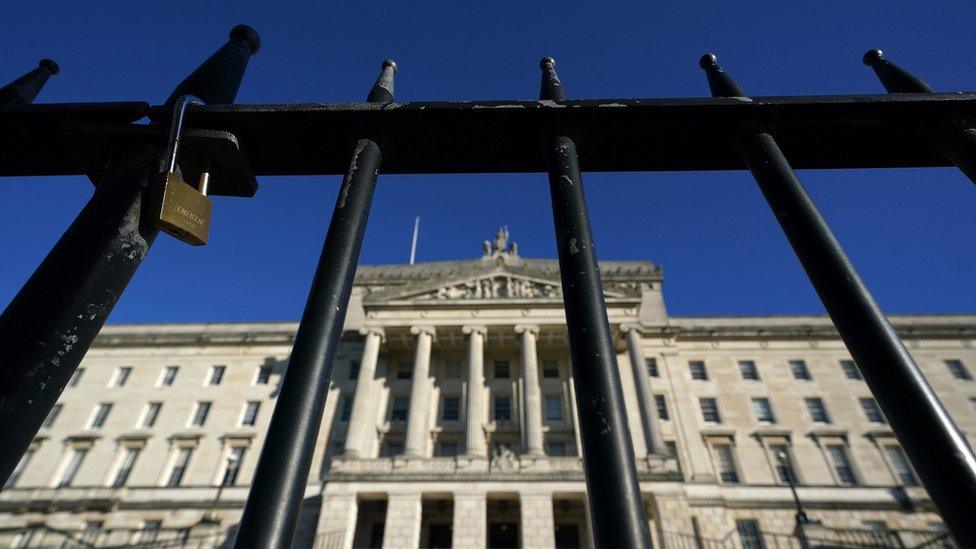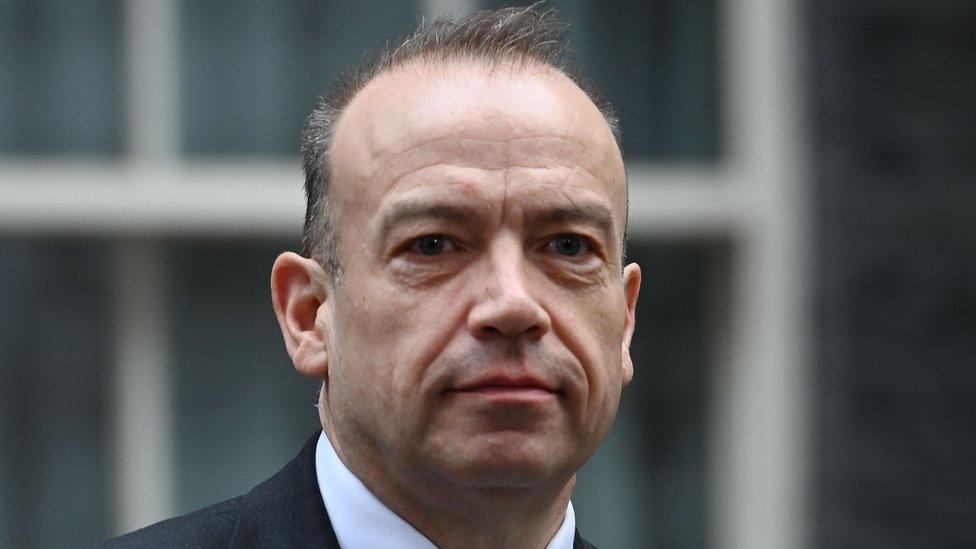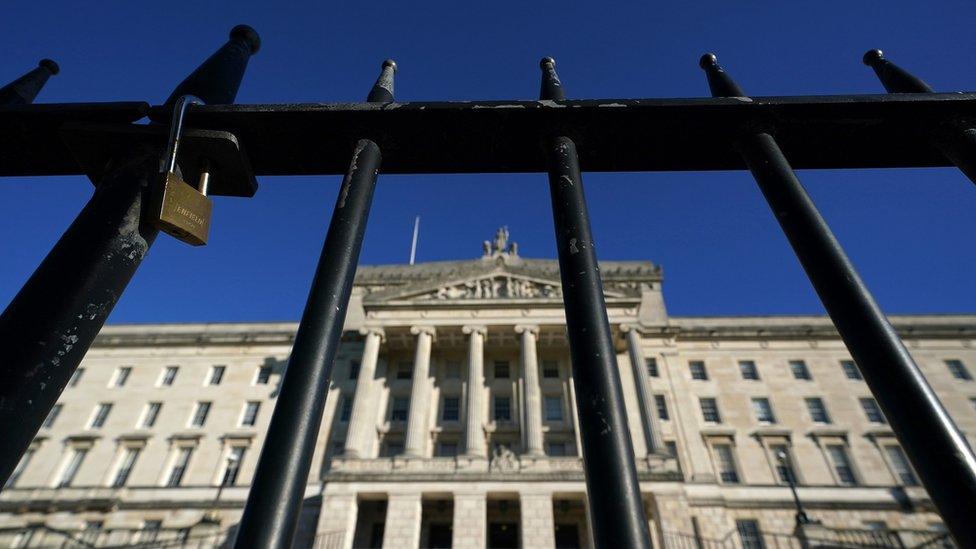Stormont: Bill on assembly members' pay cut introduced
- Published

Assembly members have continued to receive their £51,500 salary despite NI's government not functioning since February
New legislation to give the Northern Ireland secretary the power to cut assembly members' salaries has been introduced at Westminster.
Chris Heaton-Harris confirmed the move earlier in November, as the executive had not been restored.
The Executive Formation Bill will extend the time period for parties to return to power-sharing government.
It will also clarify the "limited decision-making" powers civil servants now have in the absence of ministers.
Extra provisions are also being made to allow a regional rate to be set, should an executive not be in place, as well as powers for the approval of some public appointments.
The bill was introduced in the Commons on Monday and is likely to face further scrutiny from MPs next week.
Mr Heaton-Harris said the bill would address the "realities of the governance gap in Northern Ireland during the present impasse".

Mr Heaton-Harris says the government's priority is to see elected politicians in Northern Ireland fulfil their roles
Under the new legislation, a fresh timeline will be set for the restoration of a power-sharing government.
If the Democratic Unionist Party (DUP) refuses to end its boycott of the Stormont institutions by 8 December, Mr Heaton-Harris has the option to either call an election - which would be for some time between mid-January and the beginning of March - or extend the deadline by six weeks to 19 January.
If nothing changes by then, an election could take place by 13 April.
Setting out details of the bill, the secretary of state said people in Northern Ireland were being "denied full democratic representation".
"The government's priority is to see politicians elected to return to fulfil their roles in a strong, devolved, locally-accountable government as laid out in the Belfast Good Friday Agreement," he said
"I urge the Northern Ireland parties to use this extended time to come together and deliver for the interests of all the people in Northern Ireland, particularly in this time of rising costs."
Dates for the diary
Northern Ireland has been without a government since February as the DUP has refused to return to power-sharing in protest over the Northern Ireland Protocol.
Unionist politicians argue the post-Brexit trading arrangement undermines Northern Ireland's position in the UK.
It keeps the region aligned with some EU trade rules to ensure goods can move freely across the Irish land border.
Despite an assembly election in May - in which Sinn Féin won the largest number of seats - and four attempts to elect an assembly speaker, the DUP continued to refuse to nominate executive ministers.
The UK and EU remain in talks about the protocol, in the hopes of getting a deal to suit both sides.

Analysis: More movable deadlines could come

Three weeks after he backtracked on his legal obligation to call an assembly election, Chris Heaton Harris is playing for more time.
By providing the extra space with two new deadlines, he hopes the UK and EU will strike a deal over the Northern Ireland Protocol, which could pave the way for the DUP's return to the Northern Ireland Executive.
That is a big ask given the gaps which remain between London and Brussels.
Don't be surprised if we end up with more dates to circle in the calendar once the two set today join the long list of Northern Ireland's movable deadlines.
As for cutting assembly members' salaries, let's see if that is a threat the secretary of state will stick to.

The bill also gives the secretary of state the power to amend assembly members' salaries while the assembly is "unable to conduct business and maintain public service delivery".
This could see their wages cut by 27%, or just over £14,000, reducing their incomes from £51,500 to £37,337.
"At present MLAs (members of the legislative assembly) are not in a position to fulfil the full range of their duties, so it is right that we take steps to reduce their salaries, especially in the current economic climate," Mr Heaton-Harris said.
He also criticised outgoing ministers for "poor decisions" which he said helped create the current £660m black hole in public finances.
- Published9 November 2022
